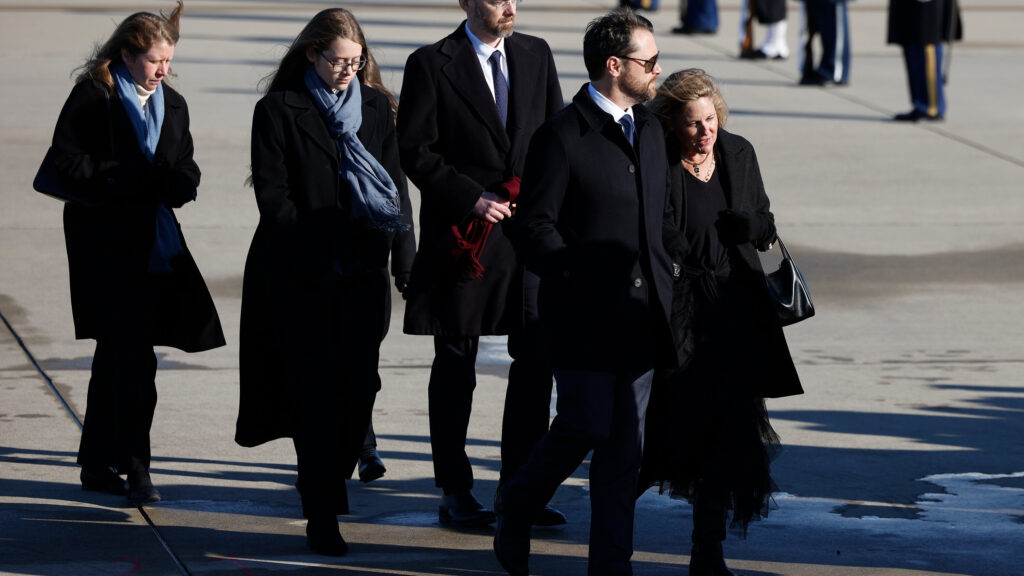Who Is Donnel Carter? An Introduction
When you hear the name Donnel Carter, most people will think of a private figure quietly navigating life in the shadows of one of America’s most storied political families. Donnel Jeffrey Jeff Carter is best known as the youngest son of former U.S. President Jimmy Carter and First Lady Rosalynn Carter. Over the years, he has largely shunned public life, focusing on business, family, and personal challenges. Yet his story is deeply interwoven with the legacy of one of America’s most humanitarian presidential families.
Donnel Carter life is not just a footnote in the Carter family narrative it is a tale of balancing public expectations, private struggles, and personal ambition. This article seeks to tell that story: who he is, what he’s done, how he’s coped with medical adversity, and what lessons his quieter path holds for those who live in the spotlight’s periphery.
Early Life & Family Background
Birth and Childhood
Donnel Jeffrey Carter was born on August 18, 1952, in New London, Connecticut, while his father Jimmy Carter was serving in the U.S. Navy. From his infancy, his life was shaped by his father’s commitments and changing assignments, meaning the Carter family moved locations quite frequently.
After Donnel’s birth, the family returned to their roots in Plains, Georgia, which remained their emotional home. He was raised among his siblings—Jack, Chip (James Earl), and Amy—in a quiet but engaged household grounded in faith, service, and modesty.
Growing up, Donnel experienced both the ordinary challenges of adolescence and the unique pressures that come from being part of a family with national prominence. The Carter household prized education, public service, and humility, traits that would deeply influence Donnel’s later life.
The Carter Family Legacy
The Carter family is widely recognized in American history: Jimmy Carter’s presidency, his post-presidential humanitarian work, and Rosalynn Carter’s advocacy for mental health all contribute to a legacy of service. Donnel Carter inherited not just a surname but a set of expectations.
In addition to his immediate family, Donnel’s heritage includes rural Georgia roots—where the values of community, humility, and hard work are deeply held. That background often tempered the glare of national attention. His siblings—Jack, Chip, and Amy—have also lived public and semi-public lives; but unlike them, Donnel largely avoided political or public ambitions.
It is this tension—being part of a famous family but not choosing the same path—that frames much of Donnel Carter’s story.
Education & Early Career
University Years
Donnel Carter’s academic path was not one of privilege only, but also of deliberate choices. He initially attended Georgia Southwestern State University, where he met his future wife, Annette Jene Davis. He later transferred to George Washington University in Washington, D.C., where he pursued a degree in geography, specializing in computer cartography. This focus distinguished him in a time before geographic information systems (GIS) became widespread.
His education combined technical skills, spatial thinking, and a broader understanding of how maps and data can influence real world planning and policy. In many ways, this was a way for Donnel Carter to carve a professional niche outside of politics.
First Professional Steps
After finishing his studies, Donnel Carter co-founded Computer Mapping Consultants in 1978. This firm focused on GIS, mapping, spatial data analysis, and related technologies, often serving both public and private sector clients.
Alongside that enterprise, he maintained a connection to his family’s broader mission: he worked in or collaborated with the Carter Center, particularly in areas of research, conflict resolution, or programmatic support. Medium Unlike more visible roles, his contributions in these areas were behind the scenes, helping shape strategy or logistics without stepping into the spotlight.
These professional choices show a deliberate effort to combine technical ability, service, and autonomy—creating a career distinct from but informed by his family heritage.
Donnel Carter’s Career and Ventures
Computer Mapping and GIS Projects
The venture Computer Mapping Consultants became the centerpiece of Donnel Carter business identity. At a time when computer mapping and GIS were still emerging, Carter’s firm was forward-looking. Its services spanned:
-
Cartographic modeling and spatial data analysis
-
Public sector mapping (e.g. urban planning, infrastructure)
-
Private sector support (e.g. market mapping, logistics)
Through this work, Donnel Carter was able to operate in a domain somewhat removed from politics yet tied to data, infrastructure, and planning—fields that carry tangible impact.
Though his firm never sought fame, its existence marked an important pivot: the use of digital mapping to integrate geography and decision-making, a sector that has only grown in importance.
Working with the Carter Center
While Donnel Carter did not assume high-profile roles within the Carter Center, he contributed to its mission in ways consistent with his skill set and interests. The Carter Center, founded in 1982 by Jimmy and Rosalynn Carter, focuses on human rights, democracy promotion, conflict resolution, and global health.
Donnel’s engagements included research support, logistical planning, or advisory functions—helping with mapping, data systems, or internal projects without stepping into the limelight. Medium This behind-the-scenes involvement honored the family mission while maintaining a boundary between his own professional identity and the public world of politics.
Personal Life & Relationships
Marriage and Children
In 1975, Donnel Carter married Annette Jene Davis, someone he met during his college years. Together they had three children:
-
Joshua Jeffrey Carter (born 1984)
-
Jeremy Davis Carter (born 1987)
-
James Carlton Carter (born 1991)
They maintained a relatively private family life, avoiding much of the public scrutiny that often accompanies presidential families.
Family Tragedies and Loss
Tragedy struck in 2015 when Donnel’s son Jeremy Davis Carter passed away at age 28. The cause was sudden, and the loss deeply affected the family. Grief, especially in high-visibility families, can trigger public attention, but the Carters chose to grieve quietly.
In 2021, Annette Davis Carter died at age 68. For Donnel Carter, losing his spouse and a child shaped a narrative of personal resilience that often goes unspoken in public biographies.
Health & Public Disclosure
Parkinson’s Diagnosis
In October 2024, it was publicly confirmed that Donnel “Jeff” Carter had been diagnosed with Parkinson’s disease. The report came days after his father’s 100th birthday, as Jimmy Carter’s health and legacy were already in public discussion.
His son Joshua confirmed the diagnosis, noting that Jeff “built his house knowing that one day he’s going to need more help.” Parkinson’s is a progressive neurological disorder affecting movement, coordination, and often non-motor symptoms. The news was met with empathy, as well as questions about how it would affect his life.
Treatment and Coping
One of the more striking details of the public disclosure was the use of deep brain stimulation (DBS) therapy. According to family statements, electrodes were surgically implanted, allowing Jeff Carter to control symptom relief via a connected device (even remotely via smartphone).
Joshua Carter explained:
“Without his therapy, he’s basically not able to do anything. And then when he turns his therapy back on … he can stand up, he can walk around … It’s a night and day shift.”
Despite Facing health challenges, Donnel Carter continues to live independently in a home modified for accessibility. He prefers not to be the “face” of Parkinson’s awareness, choosing privacy over public advocacy.
Public Persona & Role in the Carter Legacy
Preference for Privacy
Perhaps the most defining quality of Donnel Carter public life is reticence. Unlike his siblings or many children of presidents, he never pursued an overt political career or public platform. Instead, he chose to maintain a low profile—rarely engaging with media, avoiding campaigning, and letting his work speak quietly in the background.
This preference for discretion has meant that many people—even those familiar with Jimmy Carter’s presidency—are unaware of the details of Donnel’s life. The occasional public appearance is usually in connection with family events or in support of Carter Center initiatives.
Contributions Beyond Politics
While Donnel Carter did not become a politician, he has contributed to the broader Carter mission indirectly:
-
Advising or supporting logistical and data efforts for Carter Center programs
-
Maintaining the family’s reputation through dignified conduct
-
Serving as a living example of navigating adversity outside the glare of attention
By doing so, he underscores the idea that public legacy can be sustained not only through visible actions but also through character, consistency, and humility.
Challenges & Resilience
Donnel Carter’s life has not been exempt from hardship. The loss of a child, the passing of his spouse, and a serious medical diagnosis could break many. But what shines through is his endurance.
He adapted his home and lifestyle to remain independent despite Parkinson’s; he continues to work in advisory or consulting roles; and he seeks to protect privacy even while managing public interest. That resilience—balancing vulnerability and dignity—is perhaps one of his most powerful legacies.
Impact & Lessons from Donnel Carter’s Life
Though not a household name, Donnel Carter life offers lessons:
-
You can carry a famous name without losing your own identity. He chose a technical profession far from electoral politics yet remained meaningful.
-
Leadership and contribution don’t always require a microphone. His behind-the-scenes work furthers causes more than personal reputation.
-
Resilience in adversity is a quiet but strong testimony. How one carries loss or disease matters as much as what one achieves.
-
Privacy can be a form of strength. In an age of constant exposure, safeguarding parts of your life is itself a wise stance.
Misconceptions & Common Questions
-
Is “Donnel Carter” a politician? No—he has never held elective office and has avoided public political roles.
-
Was Donnel ever aspiring to the presidency? There is no record that he sought that path; his interests have centered on business and service.
-
Is Donnel Carter active in advocacy for Parkinson’s? Not prominently. He prefers to manage his health privately.
-
Does “Jeff Carter” refer to Donnel Carter? Yes—he is often called “Jeff” in family and media references. Medium+1
-
Why is he less known than his siblings? Because he deliberately avoided public attention and focused on behind-the-scenes roles.
The Future Outlook
Going forward, Donnel Carter life will be shaped by health, family, and continued private contribution. As Parkinson’s progresses, his day-to-day challenges may increase—but his measured approach suggests he will seek dignity, help when needed, and remain quietly engaged in the work he values.
Given his preference for privacy, it’s unlikely he will become a public spokesperson. Yet even in that constraints lies a path of influence: through example, narration by others, and the ongoing story of the Carter family.
Why Donnel Carter Matters Today
In contemporary discourse—where public figures are often judged by social media presence or overt activism—Donnel Carter reminds us of another model: the impact of silent consistency, humility, and inner strength. His is not a flashy narrative, but it is deeply human, full of trials, choices, and dignity.
For those interested in presidential families, health advocacy, or stories of behind-the-scenes impact, Donnel Carter deserves a place of respect. His life touches on themes of legacy, resistance to noise, and the quiet power of endurance.
How to Learn More / Further Reading
-
Profiles in major outlets like People and Hello Magazine after the Parkinson’s announcement HELLO!+1
-
The Carter Center’s published work and archives
-
Biographies of Jimmy and Rosalynn Carter, which often include family chapters
-
Academic or journalistic works on mapping, GIS, or nonprofit strategy that might reference his early consulting work
If you like, I can also prepare an alternate version focusing on “Donnell Carter” (with two “L”s) or any other person with a similar name.
Conclusion
Donnel Carter is a man of contrasts: born into one of America’s most recognizable political families, yet choosing a life of restraint; managing personal adversity while maintaining dignity; contributing quietly rather than chasing public acclaim. His journey offers a refreshing counterpoint to celebrity culture—a model of how to balance heritage, autonomy, and resilience.
If history remembers only the presidents and public heroes, it may lose sight of the quiet figures who anchor legacies through ordinary courage. Donnel Carter is one such figure.
FAQs
-
Is Donnel Carter still alive?
Yes—there is no record of his death. Recent reports confirm he is alive but living with Parkinson’s disease. -
Did Donnel Carter ever run for public office?
No evidence suggests he ever ran for elected office. He stayed out of politics and focused on business, family, and private service. -
What is Donnel Carter’s professional field?
He worked primarily in geographic information systems (GIS), computer mapping, and consulting. -
How is Parkinson’s affecting Donnel Carter?
While the diagnosis is serious, he has used deep brain stimulation therapy to manage symptoms and continues to live independently. -
How is Donnel Carter related to President Jimmy Carter?
He is the youngest son of Jimmy Carter and Rosalynn Carter.



